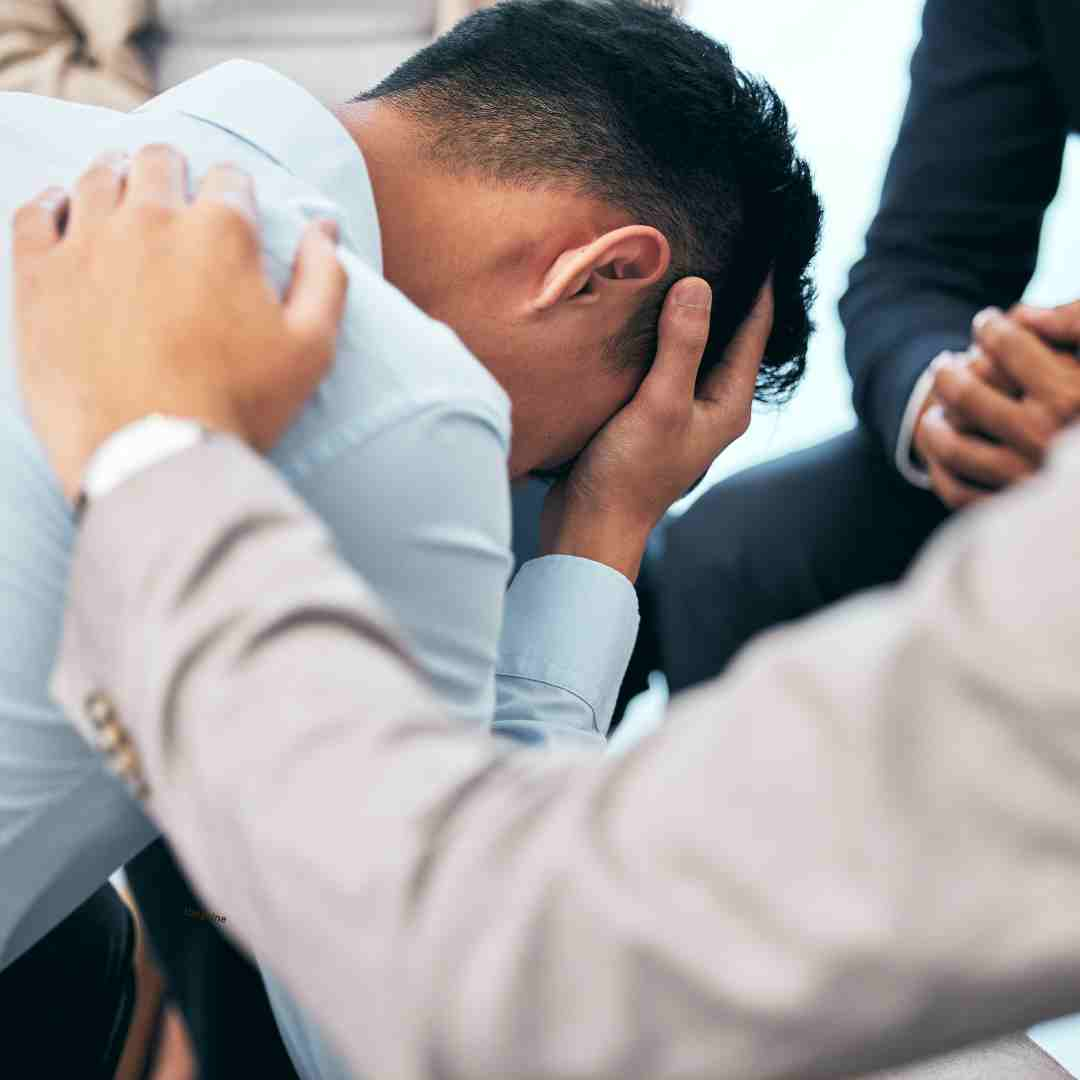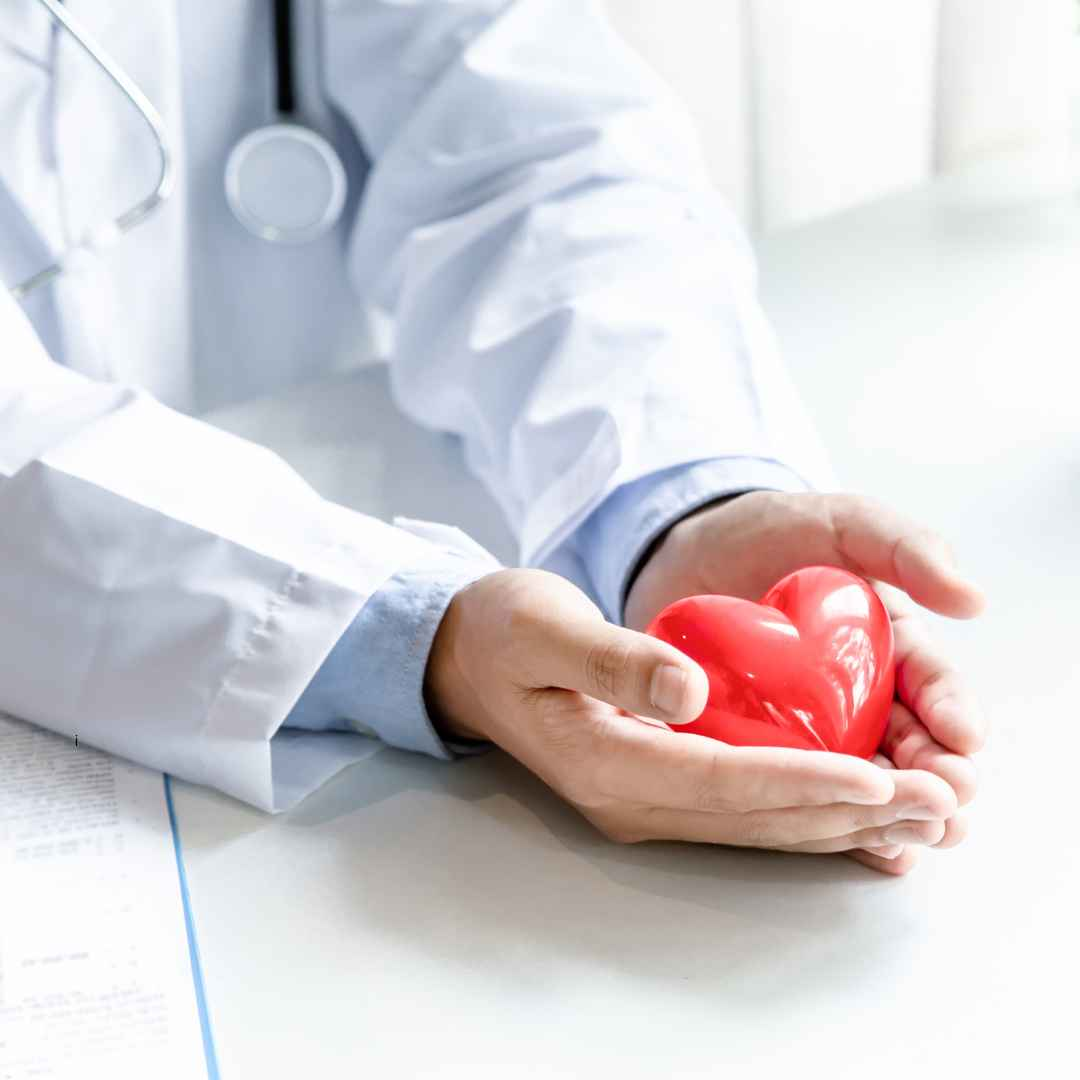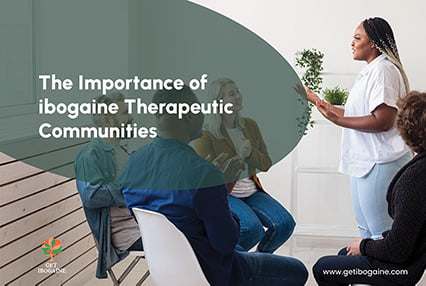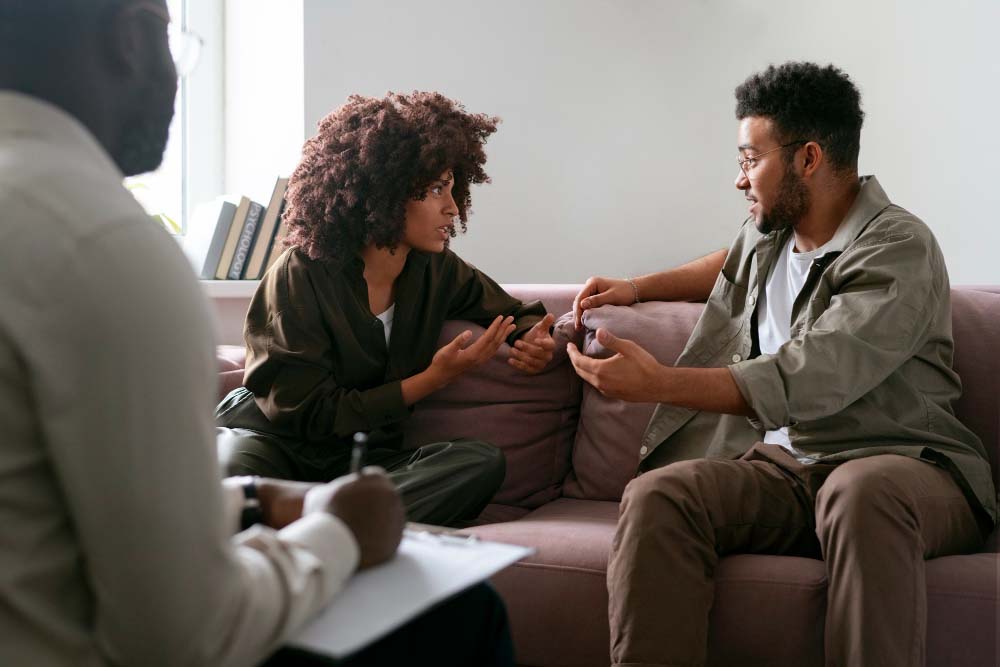If you’re considering an addiction treatment program to combat drug abuse, there’s no shortage of options. But when it comes to Ibogaine treatment, finding the right center is crucial. Without proper aftercare, Ibogaine can lead to some serious—even life-threatening—side effects.
Every step toward sobriety should be viewed as an opportunity to improve one’s health and quality of life.
Table of Contents
Ibogaine detox can help you kick your cocaine addiction by resetting your brain chemistry, which helps make it easier to stop using substances without experiencing withdrawal symptoms or a return to cravings.

Learn more about ibogaine therapy aftercare
Ibogaine aftercare can be defined as the attention and treatment that patients receive immediately following their ibogaine therapy. Ibogaine aftercare is particularly crucial for individuals dealing with opioid dependence.
This process aims to ensure that patients are safe, happy, and well cared for during their recovery period.
Ibogaine aftercare usually involves someone from the patient’s support system staying with them for several days after their ibogaine session has ended.
This way, someone is present who can help address any immediate concerns or questions that may arise during recovery.
They also remind them of what it felt like when they were at their best before taking ibogaine, inspiring further progress toward wellness in general.
You can also Read our article on How Ibogaine Can Help With Depression.
The Importance of Aftercare for Ibogaine Treatment
The aftercare process is an important part of the Ibogaine treatment process. After your ibogaine session, you will need to continue to work with a therapist or counselor who can help you integrate the changes that you have made.
Many clinics offer additional support groups and other activities to aid this process. It’s important for individuals undergoing Ibogaine treatment to receive good aftercare because they may experience what’s called “afterglow.”
This period of euphoria and heightened energy can last for up to two weeks after completing an ibogaine regimen, and it can be difficult for someone who has gone through such an intense experience to cope with these feelings on their own without help from others who understand what he/she has been through.
In addition, another benefit of receiving good aftercare is that it helps reduce cravings for alcohol, drugs, or even opioid cravings (if there were any).
By receiving therapy during the time when these cravings are strongest—the first few days following completion of treatment—you’ll be able to learn coping mechanisms that will enable you to avoid a relapse into old patterns or behaviors.
The journey to full recovery from opioid addiction
Ibogaine treatment is only one part of the process of overcoming opioid addiction—ibogaine aftercare plays an equally important role in the journey to full recovery. Ibogaine aftercare is essential for managing the intense symptoms of heroin withdrawal that can occur during the recovery process.
There are many reasons why ibogaine treatment alone may not be enough to completely recover from a substance use disorder or other chronic condition.
These include:
- The continued use of drugs or alcohol during and after treatment
- Poor dietary habits
- Social isolation and depression can lead to relapse
A lack of continuing care for substance use disorder can lead to relapse

Aftercare is important because it keeps you from relapsing into drug or alcohol abuse. Without aftercare, it’s easy to go back to the old ways and continue abusing drugs or alcohol.
Having a strong support system can help avoid this scenario by giving you someone to talk to about your feelings and keep you on track while feeling vulnerable post-treatment.
A lack of aftercare may cause people to relapse back into their old habits, which can lead them away from sobriety for good if they don’t receive treatment for opioid addiction quickly enough at this point.
Thoughtful decisions for the future
Aftercare is an important part of the recovery process and helps you make more thoughtful decisions about the future, especially when choosing the right ibogaine clinic.
Ibogaine treatment is only a part of the story. Your journey to recovery after ibogaine detox, drug testing, and treatment is about much more than just getting clean.
It’s also about establishing healthy habits and routines to help you maintain long-term sobriety.
While it may seem like you don’t need any additional support or guidance after completing your detox program, continuing care is an essential piece of the puzzle for those who want to remain sober for good.
Continuing care offers an opportunity for individuals seeking long-term sobriety to continue building upon what they learned during their detox program by addressing any issues related to relapse prevention and other areas where they may need assistance with maintaining their new life as sober individuals in recovery from addiction.
Understanding Ibogaine
What is Ibogaine?
Ibogaine is a naturally occurring psychoactive substance found in the root bark of the Tabernanthe iboga plant, a shrub native to Central Africa. It has gained attention for its potential therapeutic applications, particularly in treating addiction.
How Does Ibogaine Work?
Ibogaine interacts with various neurotransmitter systems in the brain, including dopamine and serotonin, to reset brain chemistry. This helps reduce cravings and alleviate withdrawal symptoms, making it easier for addicted individuals to stop using addictive substances.
The Role of Ibogaine in Addiction Treatment
Ibogaine Detox: Resetting Brain Chemistry
Ibogaine detox can help you kick your addiction by resetting your body and brain chemistry, which makes it easier to stop using substances without experiencing withdrawal symptoms or returning to cravings. This process can provide a fresh start, reducing the physical and psychological dependence on addictive substances.
Mechanism of Action: Interaction with Neurotransmitters

Ibogaine’s therapeutic effects are believed to arise from its complex interactions with several neurotransmitter systems:
- Dopamine System: Modulates dopamine release and receptors, addressing the brain’s reward pathways.
- Serotonin System: Enhances serotonin levels and receptor function, improving mood and reducing anxiety.
- Opioid Receptors: Interacts with opioid receptors, potentially blocking the effects of opioids and reducing cravings.
- NMDA Receptors: Acts as an antagonist, helping to reduce neurotoxic effects and withdrawal symptoms.
Choosing the Right Ibogaine Treatment Center
Factors to Consider
- Accreditation and Licensing: Ensure the center is accredited and operates legally under local regulations.
- Medical Supervision and Support: Verify that the clinic employs qualified medical professionals experienced in administering ibogaine and managing its effects.
- Reputation and Reviews: Research the clinic’s reputation through patient reviews, testimonials, and independent evaluations.
- Comprehensive Care Programs: Look for clinics offering holistic care, including pre-treatment assessments, continuous monitoring, and post-treatment support.
Questions to Ask Potential Treatment Centers
- What is the experience level of the medical staff?
- What protocols are in place for handling emergencies?
- What type of aftercare support is provided?
The Importance of Aftercare for Ibogaine Treatment
Definition and Goals of Aftercare
Ibogaine aftercare involves the attention and treatment that patients receive immediately following their ibogaine therapy. The goal is to ensure that patients are safe, happy, and well-cared for during recovery, providing support to prevent relapse and promote long-term recovery.
Components of Effective Aftercare
- Therapy and Counseling: Continue working with a therapist or counselor to help integrate the changes made during ibogaine therapy.
- Support Groups and Activities: Participate in support groups and activities designed to aid recovery.
- Lifestyle and Habit Building: Establish healthy habits and routines to maintain sobriety long-term.
Potential Side Effects and Risks of Ibogaine
Common Side Effects
- Nausea and Vomiting: Frequently occurs during the acute phase of treatment.
- Ataxia and Tremors: Loss of coordination and involuntary shaking.
- Mental Confusion: Temporary disorientation and difficulty thinking clearly.
Serious Risks
- Cardiac Complications: Risk of severe arrhythmias and cardiac arrest.
- Seizures: Potential for neurotoxicity leading to seizures.
- Psychiatric Effects: Possible emergence of manic episodes, confusion, and prolonged psychological disturbances.
Managing Side Effects
- Medical Supervision During Treatment: Essential to manage immediate adverse effects.
- Post-Treatment Monitoring and Care: Continued monitoring to ensure safety and address any delayed effects.
Long-term Recovery and Maintenance
The Role of Aftercare in Preventing Relapse
Aftercare is crucial in preventing relapse by providing continuous support and helping individuals develop coping mechanisms to manage cravings and avoid old habits.
Building a Supportive Environment
- Staying Connected with Treatment Teams: Regularly communicate with healthcare providers and therapists.
- Engaging with Family and Friends: Involve loved ones in recovery to build a strong support network.
Continuous Care and Monitoring
- Regular Check-ins with Healthcare Providers: Ongoing medical and psychological support.
- Ongoing Participation in Support Groups: Stay involved in community support to reinforce recovery efforts.
Holistic Approaches to Recovery
Addressing Physical Health
- Nutrition and Exercise: Maintain a balanced diet and regular physical activity to support overall health.
- Regular Medical Check-ups: Monitor health and address any emerging issues promptly.
Mental and Emotional Well-being
- Mindfulness and Meditation Practices: Techniques to reduce stress and improve mental clarity.
- Creative Therapies and Hobbies: Engage in activities that promote mental well-being and personal fulfillment.
Spiritual Health
- Exploring Spiritual Practices: Engage in practices that provide spiritual grounding and support.
- Engaging in Community Service: Volunteering and helping others can foster a sense of purpose and connection.
Preparing for Ibogaine Treatment
Health and Safety Considerations
- Medical Screening: Comprehensive evaluation to ensure suitability for ibogaine therapy.
- Emergency Plans: Understand the clinic’s protocols for handling emergencies.
Travel and Accommodation
- Arranging Safe Transportation: Plan safe and reliable travel to and from the clinic.
- Choosing Comfortable Accommodations: Ensure a restful environment for recovery.
Personalizing Your Recovery Plan
Identifying Personal Goals
- Short-term and Long-term Objectives: Set clear and achievable goals for recovery.
- Creating a Supportive Network: Build a network of supportive individuals and resources.
Tracking Progress
- Regular Self-assessment: Monitor progress and adjust recovery plans as needed.
- Adjusting Plans as Needed: Stay flexible and adapt to changes in recovery needs.
Understanding Drug Abuse
Drug abuse, also known as substance abuse, refers to the harmful or hazardous use of psychoactive substances, including alcohol and illicit drugs. It is characterized by a pattern of use that leads to significant distress or impairment in personal, social, or occupational functioning. Here’s a comprehensive look at what drug abuse entails, its causes, symptoms, and consequences.
Definition of Drug Abuse
Drug abuse involves the excessive and repeated use of substances to achieve a desired effect, such as euphoria or relaxation. This behavior often leads to dependence, where individuals feel compelled to continue using the substance despite adverse consequences.
Types of Substances Commonly Abused
- Alcohol: Ethanol is found in alcoholic beverages.
- Opioids: Prescription painkillers like oxycodone and hydrocodone, as well as heroin.
- Stimulants: Cocaine, methamphetamine, and prescription medications like Adderall and Ritalin.
- Depressants: Benzodiazepines and barbiturates.
- Cannabis: Marijuana and related products.
- Hallucinogens: L.S.D., psilocybin, and P.C.P.
- Inhalants: Solvents, aerosols, and gases found in household products.
Causes of Drug Abuse
Biological Factors
- Genetics: A family history of addiction increases the likelihood of drug abuse.
- Brain Chemistry: Variations in brain chemistry can make some individuals more susceptible to addiction.
Psychological Factors
- Mental Health Disorders: Conditions such as depression, anxiety, and PTSD are often linked with substance abuse.
- Stress: High levels of stress can lead individuals to use drugs as a coping mechanism.
Social Factors
- Peer Pressure: Social circles that encourage drug use can influence individuals to start abusing substances.
- Family Dynamics: Dysfunctional family environments and lack of parental supervision can contribute to drug abuse.
Environmental Factors
- Availability: Easy access to drugs increases the risk of abuse.
- Socioeconomic Status: Poverty and lack of access to education and healthcare can contribute to higher rates of substance abuse.
Symptoms of Drug Abuse
Physical Symptoms
- Changes in Appetite: Increased or decreased appetite, leading to weight changes.
- Altered Sleep Patterns: Insomnia or excessive sleepiness.
- Bloodshot Eyes: Red, watery eyes, often a sign of intoxication.
- Poor Hygiene: Neglect of personal grooming and appearance.
Behavioral Symptoms
- Neglect of Responsibilities: Failing to meet work, school, or family obligations.
- Risky Behavior: Engaging in dangerous activities, such as driving under the influence.
- Secrecy: Hiding drug use from family and friends.
- Financial Problems: Spending excessive money on drugs leads to financial difficulties.
Psychological Symptoms
- Mood Swings: Unpredictable changes in mood, including irritability and agitation.
- Paranoia: Suspicious or fearful thoughts without reason.
- Depression: Persistent feelings of sadness and hopelessness.
- Anxiety: Increased levels of anxiety and panic attacks.
Consequences of Drug Abuse
Health Consequences
- Physical Health: Drug abuse can lead to heart disease, liver damage, respiratory problems, and infectious diseases like HIV/AIDS and hepatitis.
- Mental Health: Substance abuse is often linked with mental health disorders and can exacerbate symptoms of depression, anxiety, and psychosis.
- Overdose: High doses of drugs can lead to overdose and death.
Social Consequences
- Relationships: Drug abuse often strains or destroys relationships with family and friends.
- Employment: Frequent absences, decreased productivity, and job loss are common among individuals with substance abuse issues.
- Legal Issues: Engaging in illegal activities to obtain drugs can result in criminal charges and imprisonment.
Economic Consequences
- Healthcare Costs: Increased need for medical treatment and rehabilitation services.
- Productivity Loss: Reduced ability to work and contribute to the economy.
- Legal Expenses: Costs associated with legal defense and fines.
Prevention and Treatment
Prevention Strategies
- Education: Providing information about the risks of drug abuse and promoting healthy lifestyle choices.
- Community Programs: Supporting programs that offer recreational activities and counseling services.
- Parental Involvement: Encouraging parents to communicate with their children about the dangers of drugs and to monitor their activities.
Treatment Options
- Detoxification: Medically supervised withdrawal from the substance.
- Behavioral Therapy: Cognitive-behavioral therapy (C.B.T.) and other counseling methods to address underlying psychological issues.
- Medication: Use of medications to manage withdrawal symptoms and reduce cravings.
- Support Groups: Participation in groups like Narcotics Anonymous (N.A.) for peer support.
Integrated Treatment
- Holistic Approach: Combining medical, psychological, and social interventions to address all aspects of drug abuse.
- Aftercare Programs: Ongoing support to prevent relapse and promote long-term recovery.
Takeaway:
Ibogaine can have a powerful effect on your life, but it’s still just one step in the process of becoming who you want to be.
It’s important to remember that ibogaine is just one step in your journey toward living a life you love.
Aftercare means staying connected with the people and places, including your treatment facility, that support your health and happiness. Take time to ensure these connections are still there once the treatment is over.
Stay connected with your treatment team
If you’re working with a therapist or other medical professional who helped guide you through ibogaine, it’s crucial that they keep their communication lines open after treatment ends.
It may seem like this person was just helping out during your time at the clinic, but chances are good that they’ve become an integral part of your support network—you don’t want to lose them! Staying connected with your treatment team is crucial, especially as ongoing human clinical trials continue to provide new insights into ibogaine therapy.
Stay connected with friends
Your closest friends will naturally be excited about all the new changes going on in your life following ibogaine use, especially if you have been struggling with heroin addiction; however, it can sometimes feel awkward if everyone else seems fine while you’re still struggling with post-treatment symptoms (e.g., nausea).
To prevent any awkwardness from getting in between anyone’s relationships during this period of adjustment, schedule some quality time together soon after leaving detox; this way, everyone knows they’re still valued by one another despite any differences between how their bodies react post-ibogaine drug use!
The importance of continuing care after ibogaine treatment cannot be overstated, as it is critical for a successful recovery process.
The physical and mental effects of ibogaine are profound, but they do not constitute a cure-all drug. You will still need to work on your recovery process by undertaking any necessary treatments or therapies recommended by your physician.
You will also need to continue working on your mental, physical, and spiritual health during this time.
Ultimately, the most important thing is that you continue working on yourself in order to ensure long-term sobriety from addiction or other destructive behaviors like self-harm or an eating disorder.
Conclusion
After talking with them about how well ibogaine treatment centers work on their patients and what kind of recovery process they recommend after receiving ibogaine treatment there, you can decide whether or not they are the right fit for your needs.
If so, then discuss payment options before making an appointment with them!
Aftercare will help ensure that you do not relapse into substance abuse after taking ibogaine but also give you some time off from work so everything can settle down.
The most important thing is to remember that ibogaine is just one step in becoming who you want to be. It’s not a magic cure-all that will fix all your problems, and it’s not a quick fix, either.
You will have to work hard after your treatment to continue with your recovery, but we are here to help you every step of the way.


